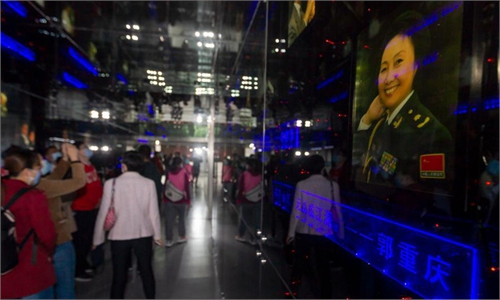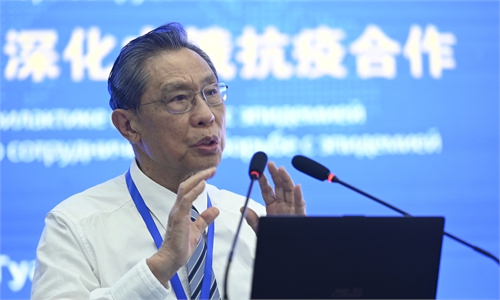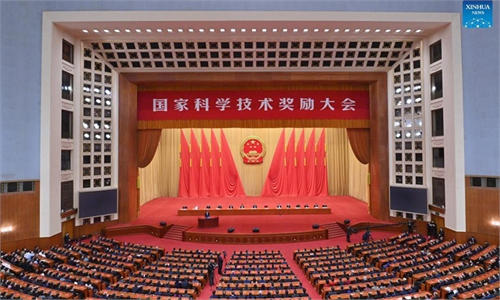China's top academies add new members
Selection work optimized with emphasis on major state projects, key technology
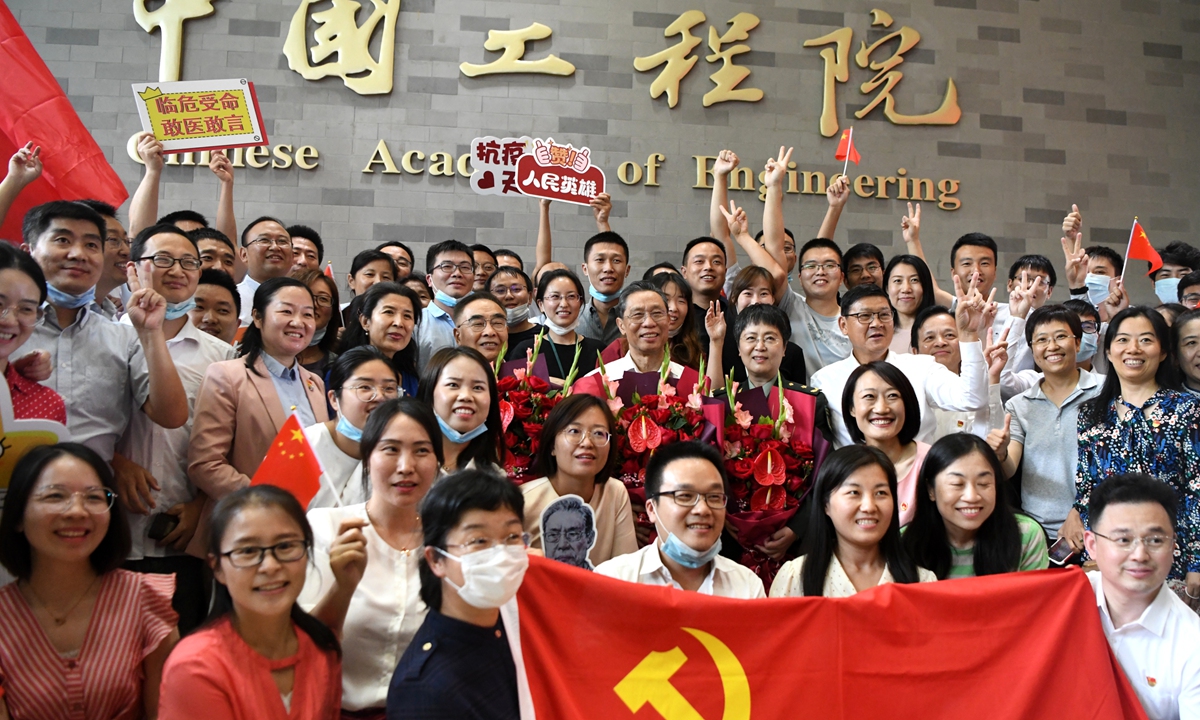
Chinese Academy of Engineering Photo: VCG
The Chinese Academy of Sciences (CAS) and Chinese Academy of Engineering (CAE) announced on Thursday the enrollment of 149 outstanding scientists as CAS and CAE academicians - China's highest national academic titles in science and engineering, and a lifelong honor. New members are selected every two years.
Among the 65 new CAS academicians, five are women. Their average age is 57.4, with the youngest at 45 and eldest at 68. In all, 76.9 percent of the new CAS members are aged below 60. After the election, the total number of CAS academicians stands at 860.
The Global Times learned from the CAS that the enrollment process has been further optimized, especially through a special recommendation and review mechanism, resulting in the addition of five scientists who work in the national defense and security fields, and three who specialize in emerging, interdisciplinary subjects.
The CAS on Thursday also announced the selection of 25 foreign members from 11 countries including the US, the UK and Russia, bringing the total to 129.
It is worth noting that 11 US scientists made the list, topping the chart. It is the first time that scientists from South Korea and Sweden were given the honor, which the CAS said showcased a more balanced distribution nation wise.
The 84 new CAE members, including six women, have an average age of 58 with the youngest at 51 and eldest at 69, and 75 percent of them are under 60. The total number of CAE academicians stands at 971.
Twenty scientists were elected foreign academicians, bringing the number of foreign CAE academicians to 111. Eight of the new members are from the US and five are from Canada, leading the race.
The CAE said its selection of new members emphasized those who have long been working on major state-level projects, made key technology breakthroughs, or contributed from the old industrial base in Northeast China and remote areas in western China.
CAE foreign academicians, on the other hand, should have high international prestige and influence, it said.
The presence of some 20 American scientists made the two lists show China's inclusiveness and respect for science and technology although people-to-people exchanges were significantly affected by the US-initiated technology war against China.
Among the 149 new CAS and CAE members, there are nine heavyweights in China's space industry, including China's domestically developed BeiDou Navigation Satellite System Chief Architect Yang Changfeng and Chief Designer of China's Space Station Yang Hong.
As one of the world's four global navigation satellite systems, BeiDou (BDS) completed deployment of the latest BDS-3 system in 2020 and has provided global service since then.
The latest official data showed that the scale of China's satellite navigation and positioning services industry reached more than 400 billion yuan ($63 billion) in 2020.
Five of China's nine space heroes are associated with the state-owned giant China Aerospace Science and Technology Corp (CASC), while three are with the state-owned China Aerospace Science and Industry Corp (CASIC.)
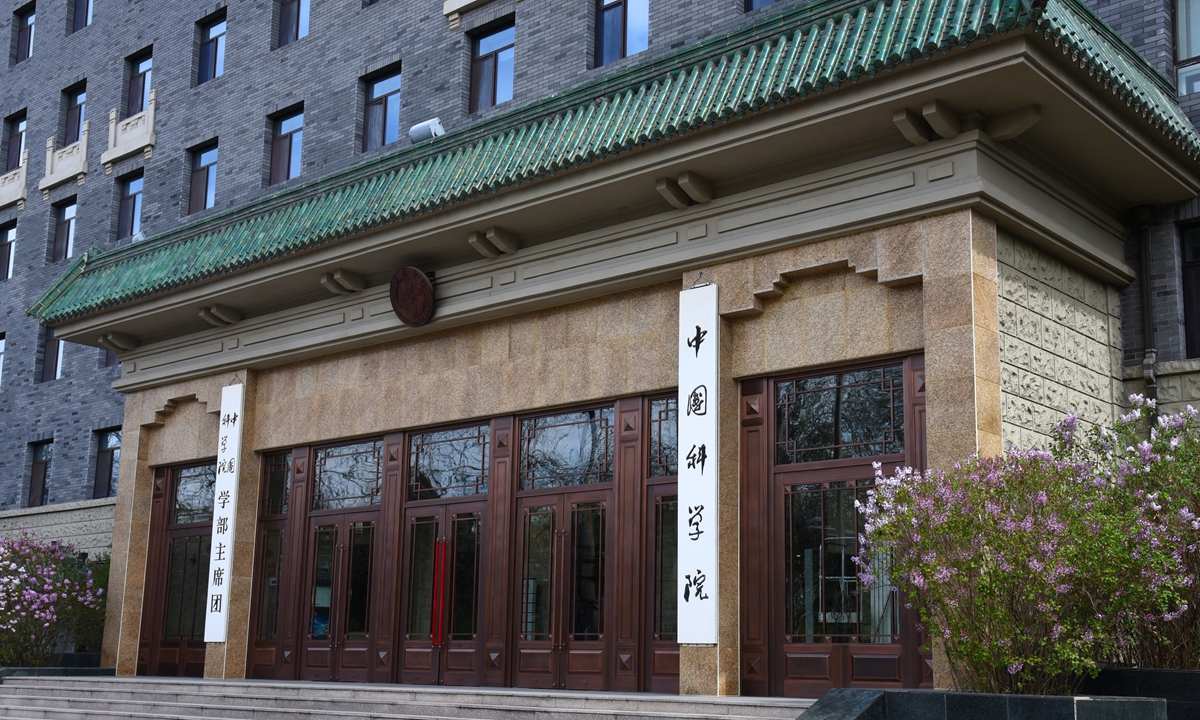
Chinese Academy of Sciences Photo: VCG
Sources from CASC and CASIC who are familiar with the matter told the Global Times on Thursday that the people chosen were absolutely deserving of the honor. "However, the projects they are working on are confidential at present," said one.
Wang Xiangming from AVIC Shenyang Aircraft Co located in Shenyang, capital of Northeast China's Liaoning Province, and Xing Liying with the AVIC Manufacturing Technology Institute in Beijing, were also selected as new CAE members on Thursday.
AVIC's Shenyang branch is known for developing a number of Chinese fighter jets including the J-11, the J-16, and in particular the J-15 carrier-based fighter jet. It also designed China's second stealth aircraft following the J-20, namely the FC-31, which did not enter Chinese military service and became a made-for-export product.
The Thursday announcements did not reveal details of the projects that helped these science and engineering elites to score the highest honors. However, their resumes showed some traces of the country's advances in certain fields, analysts said.
For example, among those selected on Thursday as a new member of the CAS was Shi Shengcai, 57, a director of the department of Antarctic astronomy and radio astronomy of the Purple Mountain Observatory, China's first modern observatory.
According to a statement that the observatory provided to the Global Times on Thursday, Shi has led the development of China's terahertz superconductor probe, which has been adopted in the country's 13.7-millimeter telescope and will be applied to the Xuntian Telescope on the China Space Station.
The telescope capsule, named Xuntian, is expected to provide observation data for astronomical and physical studies to help scientists better understand the universe.

